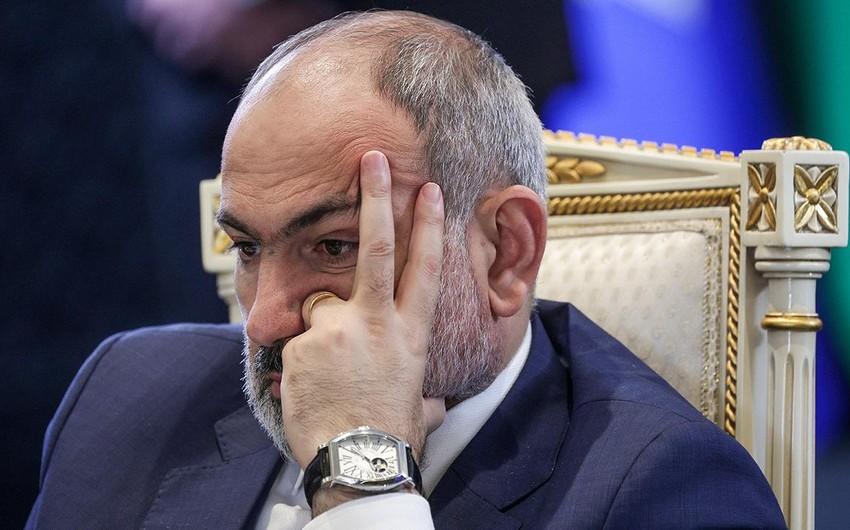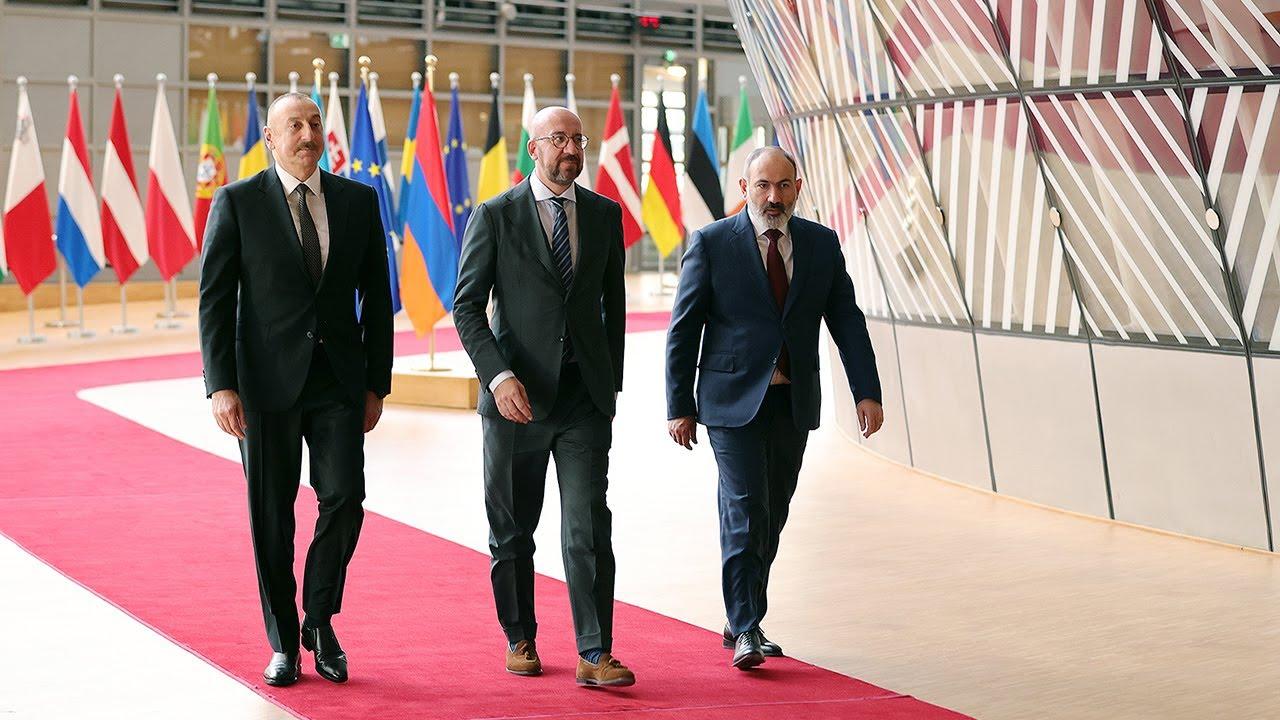Armenia coming to terms with post-conflict reality What about the internal policy?
The process of disbanding the "Artsakh Republic" became inevitable as a result of the substantive changes that took place in the negotiation process in August 2016, said Nikol Pashinyan, Armenian Prime Minister, Chairman of the Civil Contract party's Board, during the meeting of the initiative group in Ijevan.
Undoubtedly, this was a statement aimed at the internal, purely Armenian audience. He mentioned the "Artsakh Republic" for the same purpose. Of course, an attempt is not torture, but somehow all this looks funny after Pashinyan's numerous statements about recognising the territorial integrity of Azerbaijan. True, all these recognitions were made by him not immediately and not at all willingly. This, however, does not prevent Pashinyan from blaming his mistakes on the former Armenian authorities.
"In the negotiation situation we inherited, the inevitable way forward was not only the transfer of territories, etc., but also the dissolution and cancellation of the established state order in Karabakh," he said.

Pashinyan blames everything on the heavy legacy of the Karabakh clan. Against this background, it makes sense to recall some facts that prove the fallacy of the Armenian prime minister's assertion. To begin with, I will mention the situation that emerged after the four days of fighting in April 2016, as a result of which Azerbaijan for the first time rigidly demonstrated its readiness and ability to restore its territorial integrity by military means. Indeed, until that time there was an opinion in Yerevan that it was possible to imitate participation in the negotiation process indefinitely while keeping our lands under occupation. Numerous myths were created about the "invincibility" of the Armenian army and the "insurmountability" of the so-called [former Armenian Defence Minister Seyran] “Ohanyan’s line”. Of course, the Armenian side's confidence in the correctness of its chosen path was also linked to the position of the OSCE Minsk Group Co-Chair countries. They also tried to keep the Armenian-Azerbaijani conflict "frozen", pursuing their own geopolitical goals. But all this was nullified precisely by the results of the four-day war in April.
That was the exact reason why the third President of Armenia Serzh Sargsyan and Ohanyan were going out of their way to deny the defeat of the Armenian army, the liberation of over 20 square kilometres of our lands by the Azerbaijani Armed Forces and the transfer of strategically important heights under our control. Serzh and Seyran realised that the loss of power was close. This had happened indeed. It was the collapse of many myths in April 2016 that catalysed the processes that led to the change of power in Armenia in 2018.
But what did the new Armenian authorities in the person of Nikol Pashinyan do? No, he did not abandon his previous line of imitating the negotiation process, did not agree to the withdrawal of Armenian occupation troops from our lands, and did not recognise the territorial integrity of Azerbaijan. On the contrary, Baku heard openly provocative statements from the representatives of official Yerevan. For example, in March 2019, then-Armenian Defence Minister David Tonoyan, who was on an official visit to the United States, said at a meeting with representatives of the Armenian community in New York: "As Defence Minister, I say that I have rephrased the formula "territories in exchange for peace" into the formula "new war - new territories". But this was only the beginning.
Already in the summer of 2019, during a trip to the then-occupied Khankendi, Pashinyan declared in front of an angry crowd that "Karabakh is Armenia, and that's it!". Official Baku justifiably perceived Pashinyan's words as a refusal to negotiate a settlement of the Armenian-Azerbaijani conflict.
On July 12, 2020, clashes started on the border between Armenia and Azerbaijan. This was a provocation organized personally by Pashinyan, who hoped to draw the CSTO and Azerbaijan into the conflict. His plans were not destined to come true, but the very fact of that provocation, as well as the above-mentioned actions of official Yerevan, contradict the current statement of Pashinyan, who is trying to blame his predecessors at the helm of the Republic of Armenia exclusively for the disbandment of the puppet entity.
Undoubtedly, the turning point in changing Pashinyan's position was the 44-day war in 2020, after which he was forced to sign the Trilateral Statement, which was essentially an act of surrender for Armenia. And then there was the negotiation process, which took place in the new realities. Official Yerevan was forced to publicly recognize Karabakh as Azerbaijani territory at the quadripartite meeting in Prague in October 2022. It should be recalled that at that meeting the parties agreed that a peace treaty would be signed based on the UN Charter and the Almaty Declaration.

Since then, we have been hearing regular statements by Nikol Vovayevich about recognizing the territorial integrity of Azerbaijan. They made the disbanding of the Karabakh junta inevitable. This is what happened at the end of September this year as a result of a brilliantly planned and implemented anti-terrorist operation.
And now we see a completely new picture. There was a truly breakthrough joint statement of the Presidential Administration of Azerbaijan and the Office of the Prime Minister of Armenia, which laid an important foundation for the signing of a large peace agreement between the countries. I would like to emphasize that according to this statement, Baku and Yerevan agreed to support each other in some international platforms.
Moreover, in a joint statement, Armenia said that it will support Azerbaijan's bid to host the COP29 conference. We can only hope that by that time a peace treaty between Armenia and Azerbaijan will be signed and RA Prime Minister Nikol Pashinyan will visit our country as a COP29 participant.








